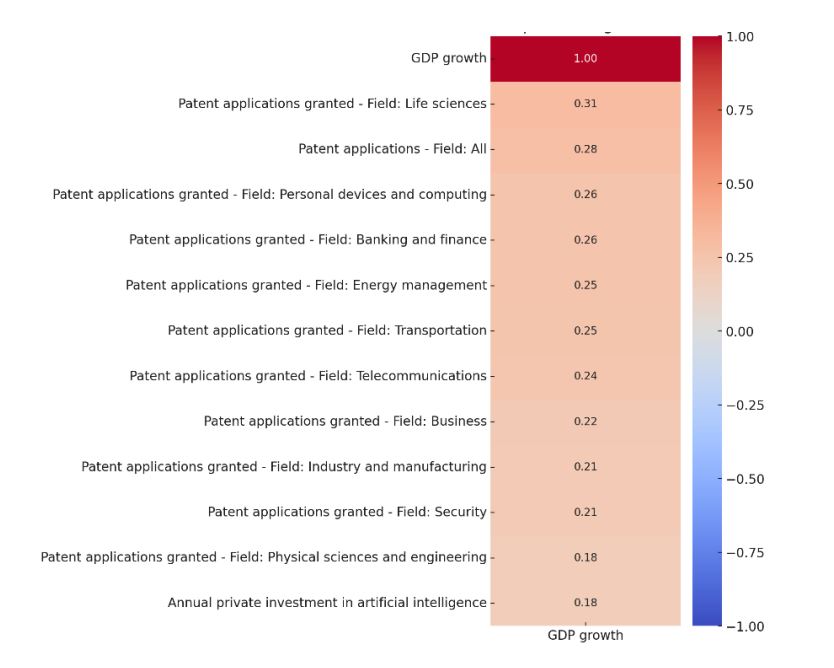The Impact of AI-Innovations and Private AI-Investment on U.S. Economic Growth: An Empirical Analysis
Keywords:
AI-related innovations, economic growth, empirical analysis, private investment, U.S. Gross Domestic ProductAbstract
This study aims to empirically analyze the impact of AI-related innovations and private investments in the AI sector on the annual growth of the U.S. Gross Domestic Product (GDP) from 2010 to 2020. Using data from the International Monetary Fund (IMF) and the Center for Security and Emerging Technology (CSET), the dependent variable is the annual percentage change in U.S. GDP, adjusted for inflation. Independent variables include annual private investment in AI and the number of AI-related patent applications and granted patents, across various sectors of U.S. such as Life Sciences, Banking and Finance, and Energy Management. The data were transformed into logarithms to minimize the impact of outliers. Analytical methods included correlation analysis and Random Forest Regression on both current and lagged values. The findings indicate that there is a varying degree of correlation between U.S. GDP growth and AI-related activities. Life Sciences showed the highest immediate correlation with GDP growth. Physical Sciences and Engineering exhibited the most substantial lagged correlation, suggesting their impact may be realized over time. Interestingly, annual private investment in AI had the highest feature importance score in predicting GDP growth, both in current and lagged datasets. This indicates that investments in AI technologies play a crucial role in stimulating economic activity, both immediately and over the long term. The importance of AI-related patents also changes between current and lagged datasets, highlighting the dynamic time-delayed impact of these activities on economic growth. The study underscores the need for policymakers to consider both immediate and time-delayed impacts of AI-related innovations and investments in formulating economic strategies. These insights can be valuable for directing resources to sectors that could most effectively stimulate economic growth.

Downloads
Published
How to Cite
Issue
Section
License
Publication Licensing Terms:
Copyright: Authors retain copyright, granting the journal first publication under a Creative Commons Attribution (CC BY) license.
Licensing: The CC BY license allows any use with proper attribution and a link to the journal's website.
Author's Warranties: Authors confirm their work is original and does not violate any third-party rights.
Reuse and Distribution: Authors are free to share their work online after publication.
Attribution: Users must credit the work as specified under the CC BY license without suggesting author endorsement.
Responsibility: Authors bear responsibility for copyright infringement issues.
